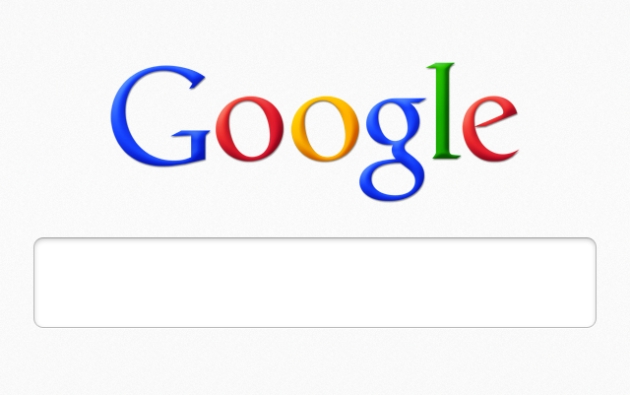- Home
- Internet
- Internet News
- Government requests to censor content 'alarming': Google
Government requests to censor content 'alarming': Google

In its twice-yearly Transparency Report, the world's largest web search engine said the requests were aimed at having some 12,000 items overall removed, about a quarter more than during the first half of last year.
"Unfortunately, what we've seen over the past couple years has been troubling, and today is no different," Dorothy Chou, the search engine's senior policy analyst, said in a blogpost. "We hoped this was an aberration. But now we know it's not."
Many of those requests targeted political speech, keeping up a trend Google said it has noticed since it started releasing its Transparency Report in 2010.
"It's alarming not only because free expression is at risk, but because some of these requests come from countries you might not suspect - Western democracies not typically associated with censorship," said Chou. (http://googlepublicpolicy.blogspot.co.uk/2012/06/more-transparency-into-government.html)
In the second half of last year, Google complied with around 65 percent of court orders and 47 percent of informal requests to remove content, it said.
The censorship report offers an overview of which officials have asked Google to delete content and why.
In one case, Spanish regulators asked Google to remove 270 links to blogs and newspaper articles criticising public figures, including mayors and public prosecutors.
So far Google has not complied. In March, Spain's highest court asked the European Court of Justice to examine whether requests by citizens to have content removed were lawful.
In some countries, Google says it has no choice but to submit to these requests, because certain types of political speech are unlawful.
In Germany, the company removes videos from YouTube with Nazi references because these are banned.
Chou said that in Thailand videos featuring the monarch with a seat over his head have been removed for insulting the monarchy. The country has some of the world's toughest "lese- majeste" laws.
In Canada, Google was asked by officials to get rid of a YouTube video showing a citizen urinating on his passport and flushing it down the toilet. But in that instance the company refused.
Google and many other online providers maintain that they cannot lawfully remove any content for which they are merely the host and not the producer, a principle enshrined in EU law on eCommerce since 2000.
In January 2012 the European Union's executive Commission announced it would introduce clearer guidelines on handling such requests, outlining under which circumstances it would be legal to have content removed from the Web and when it would curb free speech and fundamental rights.
The Commission has launched a public consultation called "a clean and open Internet" and has asked companies how many requests they get to take down content, from whom and for what reason.
Copyright Thomson Reuters 2012
Get your daily dose of tech news, reviews, and insights, in under 80 characters on Gadgets 360 Turbo. Connect with fellow tech lovers on our Forum. Follow us on X, Facebook, WhatsApp, Threads and Google News for instant updates. Catch all the action on our YouTube channel.
Related Stories
- Samsung Galaxy Unpacked 2026
- iPhone 17 Pro Max
- ChatGPT
- iOS 26
- Laptop Under 50000
- Smartwatch Under 10000
- Apple Vision Pro
- Oneplus 12
- OnePlus Nord CE 3 Lite 5G
- iPhone 13
- Xiaomi 14 Pro
- Oppo Find N3
- Tecno Spark Go (2023)
- Realme V30
- Best Phones Under 25000
- Samsung Galaxy S24 Series
- Cryptocurrency
- iQoo 12
- Samsung Galaxy S24 Ultra
- Giottus
- Samsung Galaxy Z Flip 5
- Apple 'Scary Fast'
- Housefull 5
- GoPro Hero 12 Black Review
- Invincible Season 2
- JioGlass
- HD Ready TV
- Latest Mobile Phones
- Compare Phones
- Tecno Pova Curve 2 5G
- Lava Yuva Star 3
- Honor X6d
- OPPO K14x 5G
- Samsung Galaxy F70e 5G
- iQOO 15 Ultra
- OPPO A6v 5G
- OPPO A6i+ 5G
- Asus Vivobook 16 (M1605NAQ)
- Asus Vivobook 15 (2026)
- Brave Ark 2-in-1
- Black Shark Gaming Tablet
- boAt Chrome Iris
- HMD Watch P1
- Haier H5E Series
- Acerpure Nitro Z Series 100-inch QLED TV
- Asus ROG Ally
- Nintendo Switch Lite
- Haier 1.6 Ton 5 Star Inverter Split AC (HSU19G-MZAID5BN-INV)
- Haier 1.6 Ton 5 Star Inverter Split AC (HSU19G-MZAIM5BN-INV)







![[Partner Content] OPPO Reno15 Series: AI Portrait Camera, Popout and First Compact Reno](https://www.gadgets360.com/static/mobile/images/spacer.png)









